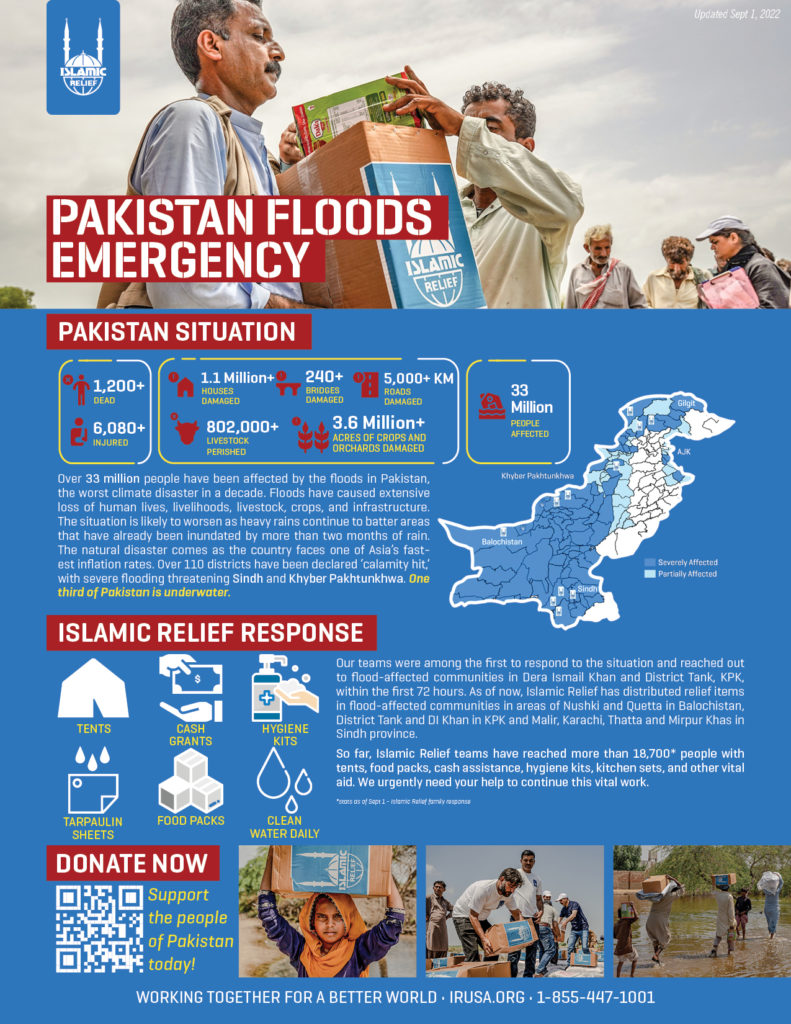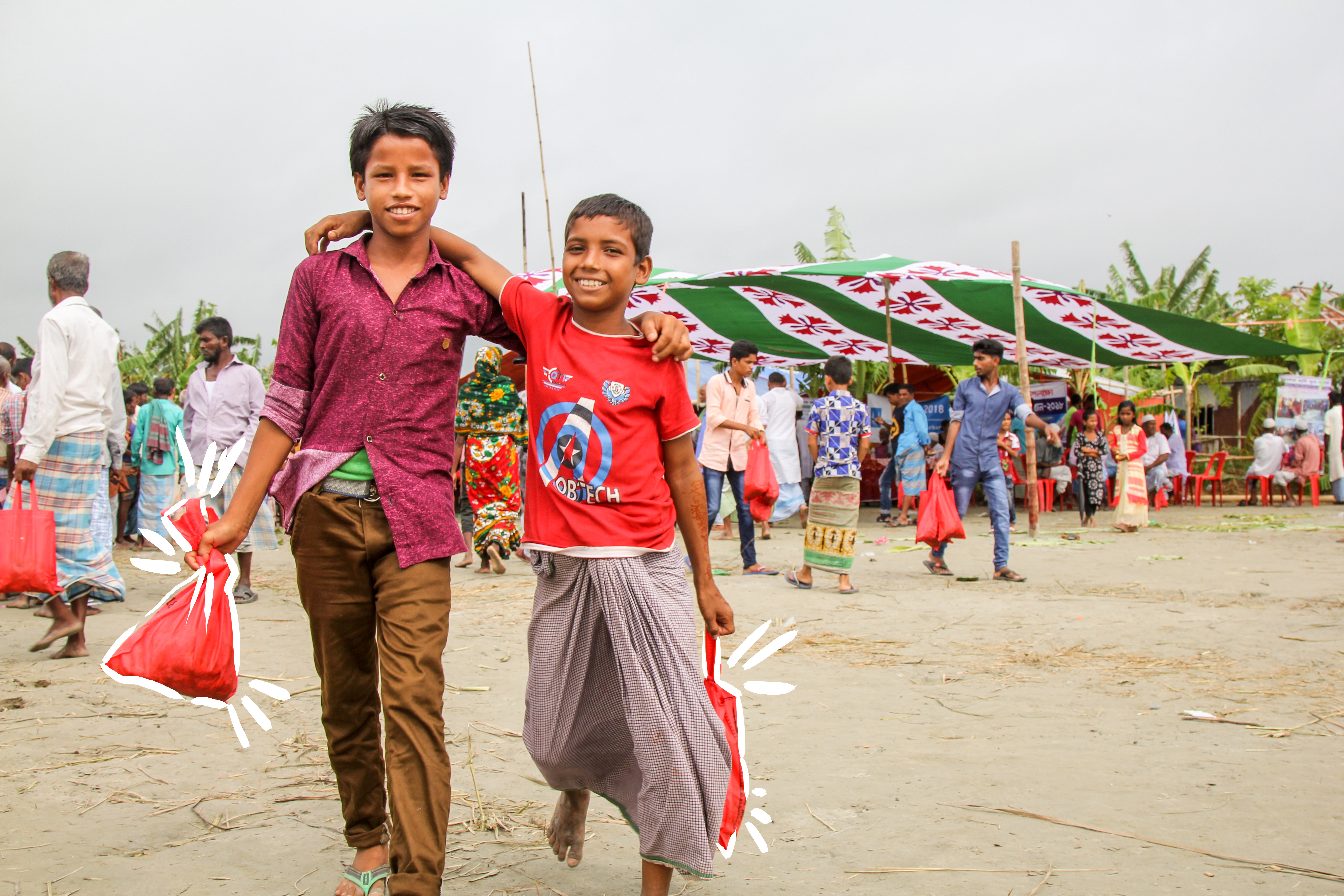Pakistan is under water: how IRUSA is advocating for climate adaptation and resiliency

Monsoon rains, caused by rising temperatures related to climate change, have caused flash flooding across Pakistan including the areas of Balochistan, Sindh, Khyber Pakhtunkhwa, and Punjab, leaving over 33 million people in urgent need of humanitarian assistance. The death toll has surpassed 1,200, and more than 6,000 people have been injured according to Pakistan’s Natural Disaster Management Authority (NDMA). The floods caused damage to vital infrastructure including over 3,000 miles of roads and bridges, damaged or destroyed over 1 million homes, and caused over 800,000 livestock to perish.
The damage is still not done—heavy rains are expected to continue, increasing the flooding even more in weeks to come, exacerbating an already-critical situation: People’s ability to flee to safety or attain vital services has become virtually impossible, and livelihoods, especially those based on agriculture have come to a screeching halt, with economic growth predicted to fall to 3% or 4% from its current 6%, further threatening food security in the region.
While monsoons are not new to the region, this year’s rains were 190% higher than average. Pakistan’s senator and climate official, Sherry Rehman, stated that Pakistan is experiencing a “serious climate catastrophe, one of the hardest in the decade.” A study by the Potsdam Institute for Climate Impact suggests that monsoon rains are becoming stronger and more erratic due to the warming of the planet.
Although Pakistan is suffering due to man-made changes in the atmosphere caused by CO2 and other greenhouse gas emissions, the country is responsible for less than 1% of these emissions, according to data from the World Bank. The largest contributor to CO2 emissions is the United States, followed by China, Russia, Germany, and the United Kingdom. The United States alone emits 416,738 metric tons of total carbon dioxide emissions per year, due to our significant reliance on fossil fuels for transportation, industrial production, and power generation.
Here, at Islamic Relief USA (IRUSA), we are working on a long-term recovery plan for Pakistan that includes shelter, non-food items, food security, and protection. However, we understand that we must also advocate for pathways and policies that assist communities suffering from the impacts of global climate change to help prevent catastrophic events in the first place.
Our IRUSA advocates work towards building greater US government support for global adaptation and resilience development programs for communities around the world hardest hit by the impacts of climate change: some of these programs include increased use of climate smart agriculture techniques, improved utilization of water resources, land conservation, as well as disaster preparedness and early warning systems. Some of the major advocacy victories we have achieved over the past year include providing extensive feedback and input into the drafting of USAID’s Climate Strategy that will lead the agency’s response to climate impacts through 2030. We also advocated and built support for USAID’s President’s Emergency Plan for Adaptation and Resilience (PREPARE) initiative, through which the United States will support half a billion people to adapt and manage the impacts of global climate change.
We are also proud to share that the majority of our climate adaptation and resilience development work at IR Pakistan is “locally-led and people-centered, meaning we give local institutions and communities more direct access to finance and decision-making power over how adaptation actions are defined, prioritized, designed, and implemented; how progress is monitored; and how success is evaluated.”
At the national level, we will continue holding governments accountable for their commitments under the Paris Agreement and UN Sustainable Development Goals related to climate change. We are continually working across the aisle in Congress to build bipartisan support for funding these essential, lifesaving programs. Most recently, our team at Islamic Relief USA were also able to successfully advocate in the Senate to increase the proposed climate adaptation to a record high of $550 million in the chamber’s proposed Fiscal Year 2023 State and Foreign Operations Appropriations bill.
To learn more about IRUSA’s advocacy work, visit irusa.org/advocacy



